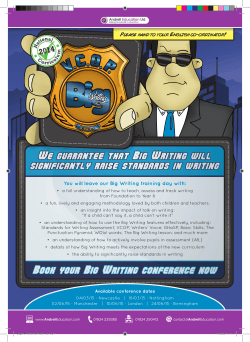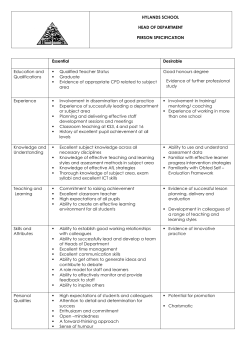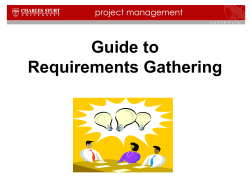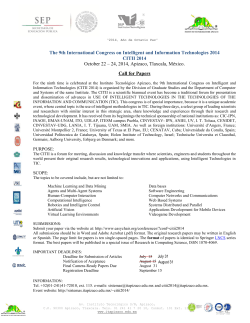
What is effective assessment for learning? Facullty of Education, McGill
What is effective assessment for learning? Facullty of Education, McGill October 7, 2013 Presenter: Mike Pellegrin, MELS + Pedagogy Disciplinary content Students Adapted with permission, from Megan Webster Workshop objectives Address the question: Why is assessment for learning a key ingredient in effective teaching? Workshop objectives Define AFL and roots in differentiation Discuss and try out some tools for AFL Participate in hands-on activities Set personal priorities in AFL Turn and Talk What is assessment for learning? Time: 2 minutes The word 'assess' comes from the Latin verb 'assidere' meaning 'to sit with'. In assessment one is supposed to sit with the learner. What is assessment for learning? Classroom environment Wait time Open-ended and higher order questions If you don’t ask the right questions... Assessing deeper thinking Can you tell me more…? Why do you think that…? What would happen if…? How does you see that working? What do you notice? Video? Built in to the daily teaching & learning process Gathered from a from variety of instruction strategies and techniques Fills in gaps, clarifies, misconceptions, provides feedback. Provides information about what students understand Engages students in their own learning Used to adapt our teaching Gathering Evidence Assessment as trending Exemplars as goal posts Observations and conversations Conferencing Running records Gathering Evidence Not marking: Damian Cooper Gradual release: Writer’s Notebook con’t Gathering Evidence Portfolios Exit Cards con’t Assessment tools Providing Ongoing feedback Graphic Organizers RAN Always build in AFL in your planning: When am I going to assess? How will I know if they are understanding? Consider second language students We are all intelligent, mature thinkers with a lot of potential for greatness. Kids are all intelligent, immature thinkers with a lot of potential for greatness. Don Tascott
© Copyright 2025





















